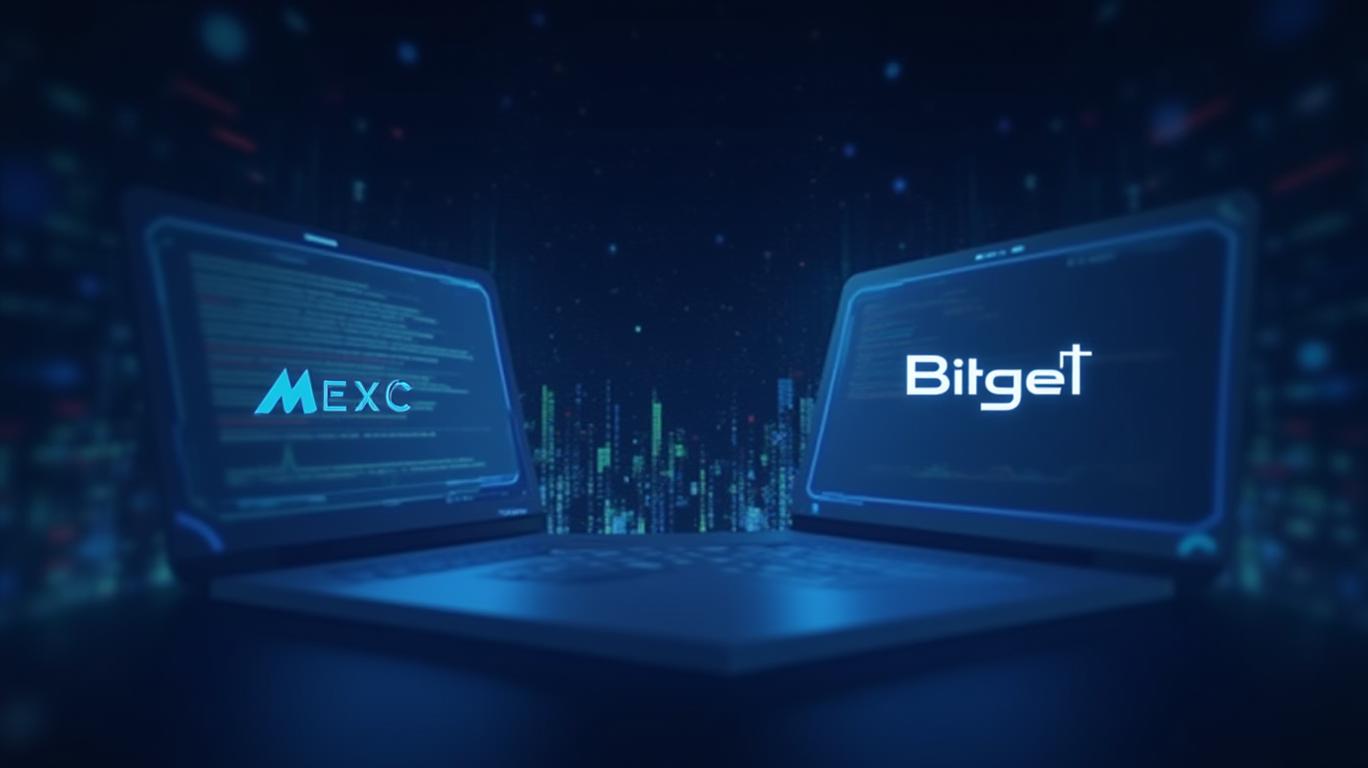MEXC, Bitget Differ in Leverage, Fees, and Features
MEXC and BitgetBIT-- are two prominent crypto exchanges that offer a range of services, including spot trading, futures trading, P2P trading, and instant crypto-to-crypto conversion. Both platforms prioritize security with features like 2FA and cold storage. MEXCMXC-- is known for its no-KYC trading policy, allowing users to withdraw up to 10 BTC daily without identity verification, which is ideal for privacy-focused traders. Additionally, MEXC offers 200x leverage trading, which is higher than Bitget’s 125x. Bitget, on the other hand, is renowned for its copy trading feature, enabling beginners to replicate the trades of over 190,000 expert traders. Bitget also provides advanced trading tools such as 5x margin trading and a DeFi wallet for token swaps across different chains, features not available on MEXC. However, MEXC supports a larger number of cryptocurrencies, with over 2,950 coins compared to Bitget’s 1,200.
In terms of fees, MEXC charges 0% maker and 0.05% taker fees for spot trading, which is lower than Bitget’s 0.1% for both maker and taker. For futures trading, MEXC has a 0% maker fee and 0.04% taker fee, while Bitget charges 0.02% for maker orders and 0.06% for taker orders. Both exchanges offer low withdrawal fees, with MEXC charging about 0.00003 BTC for Bitcoin withdrawals and Bitget offering zero withdrawal fees on the BEP-20 network. Deposit fees are generally free for cryptocurrencies on both platforms, but fiat deposits on Bitget are more comprehensive, supporting bank transfers and various local payment options.
MEXC’s best features include 200x leverage perpetual futures trading, spot trading, copy trading, staking, and a meme coin trading zone. Bitget excels in copy trading, 125x leverage futures trading, spot trading, and advanced automated trading bots. Bitget also offers a variety of Earn products, including fixed and flexible staking, on-chain earn, crypto loans, and more. Both exchanges provide robust security measures, including 2FA, cold storage, anti-phishing codes, withdrawal address whitelisting, SSL encryption, and multi-sig technology. Bitget has a protection fund of over $600 million to cover user losses in case of a security breach, while MEXC does not have such a fund. Bitget holds licenses in various jurisdictions, including a VASP license from Bulgaria and is working on a BSP license in El Salvador, whereas MEXC operates without major licenses due to its no-KYC policy.
User experience and customer support are strong points for both exchanges. MEXC offers a user-friendly interface and a feature-rich mobile app, but customer support responses can be slow. Bitget provides 24/7 live chat and email support, known for faster responses. Real user reviews for MEXC highlight its reliability in deposits and withdrawals but criticize the slow customer support. Bitget users appreciate the seamless buy/sell/swap experience and the ease of transferring funds. MEXC is best suited for users seeking no-KYC trading, high-leverage futures trading, and a wide variety of supported coins. Bitget is ideal for those interested in copy trading, margin trading, advanced trading bots, and DeFi use. Both exchanges cater to different user needs, making them competitive options in the crypto trading landscape.

Quickly understand the history and background of various well-known coins
Latest Articles
Stay ahead of the market.
Get curated U.S. market news, insights and key dates delivered to your inbox.



Comments
No comments yet